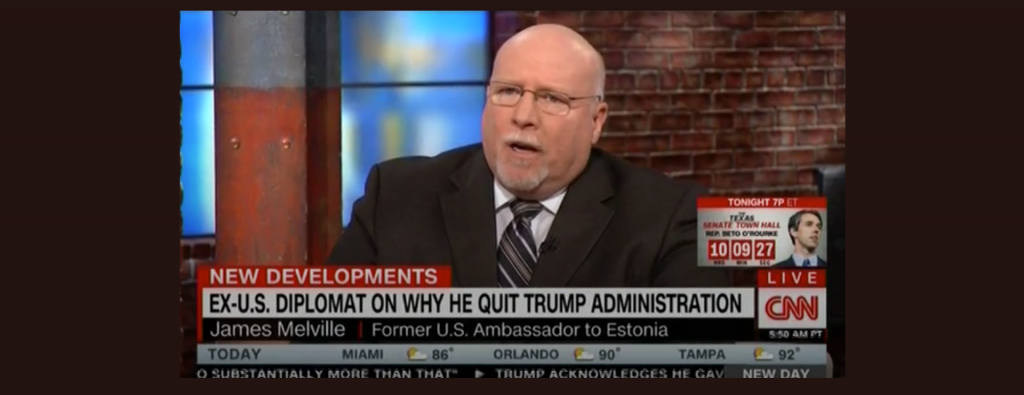While closed captioning is supposed to offer a faithful transcription of the words spoken on a given television station, the human transcriptionists that produce it sometimes omit the full title and other spoken details about guests, creating searchability gaps. For example, on CNN's "New Day With Alisyn Camerota and John Berman" at 5AM PST on October 18, 2018, James Melville was introduced as "Veteran diplomat James Melville spent more than 30 years in America's foreign service, most recently serving as US Ambassador to Estonia, but he recently resigned…", while the station-provided closed captioning offered only "veteran diplomat james melville recently resigned."
In contrast, the chyron text overlay during the broadcast titled the guest "James Melville Former US Ambassador to Estonia," reestablishing a searchable link to Estonia. Most importantly, this chyron overlay continued from 5:50AM PST through 5:56PM PST, documenting that he was onscreen for nearly 6 minutes, despite the spoken word transcript containing no further mention of his links to Estonia, with the host's final closing remarks regarding the speaker referring to him only as "Ambassador" and omitting Estonia.
Thus, relying exclusively on closed captioning would yield no connection to Estonia during this broadcast, while the chyron text establishes not only a clear connection to the country, but even records that Melville was onscreen for 6 minutes.
Chyron text can often be a powerful signal identifying guest speakers and their affiliations and most importantly record how long they are onscreen, offering a proxy of screen time that does not require technologies like facial or voice recognition.
Moving forward, the extraordinary accuracy of modern voice transcription tools like Google's Cloud Speech-to-Text API offers an opportunity to reconstruct complete spoken word transcripts, though chyrons will still serve as a powerful signal for just how long those speakers are onscreen.
